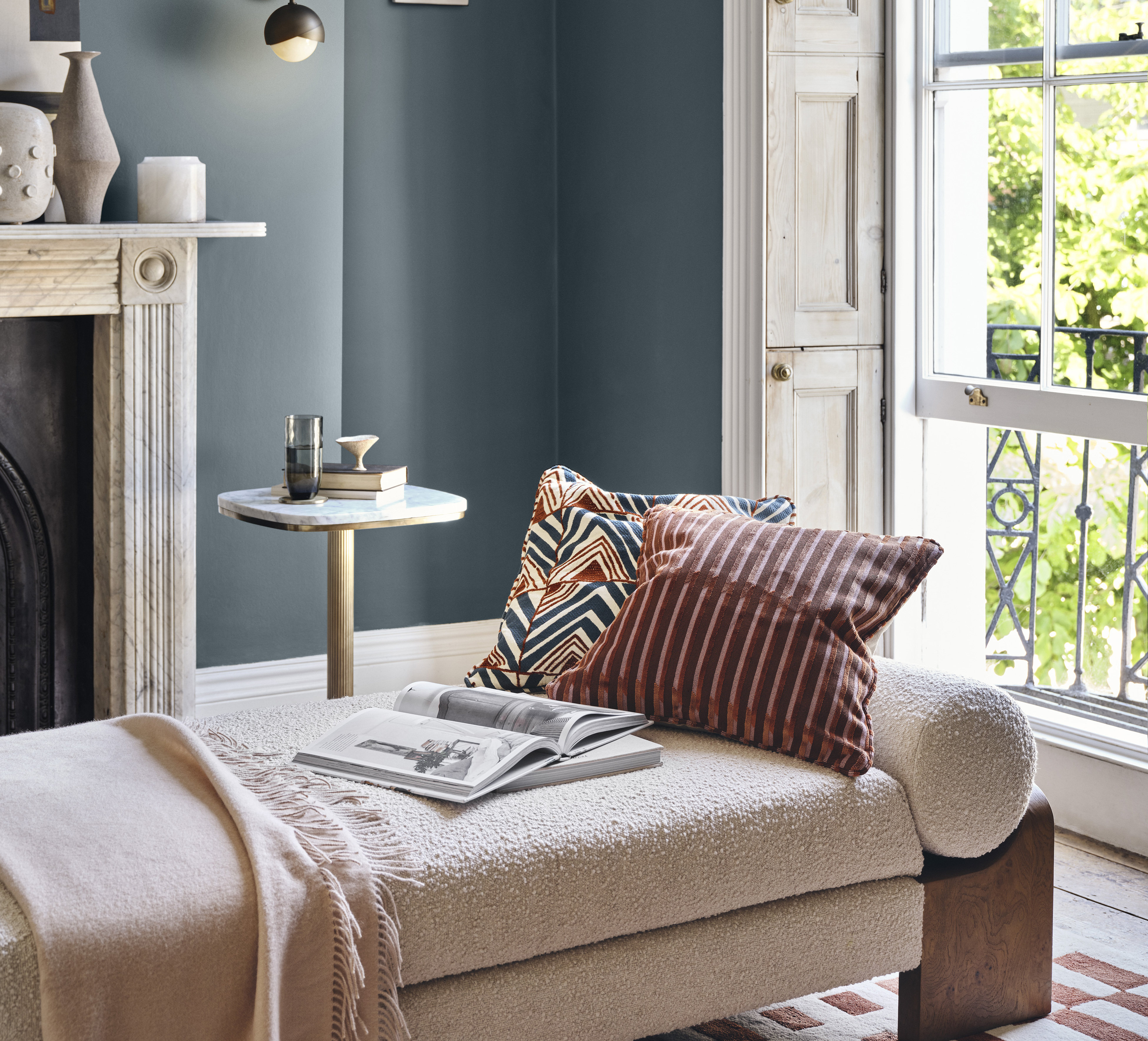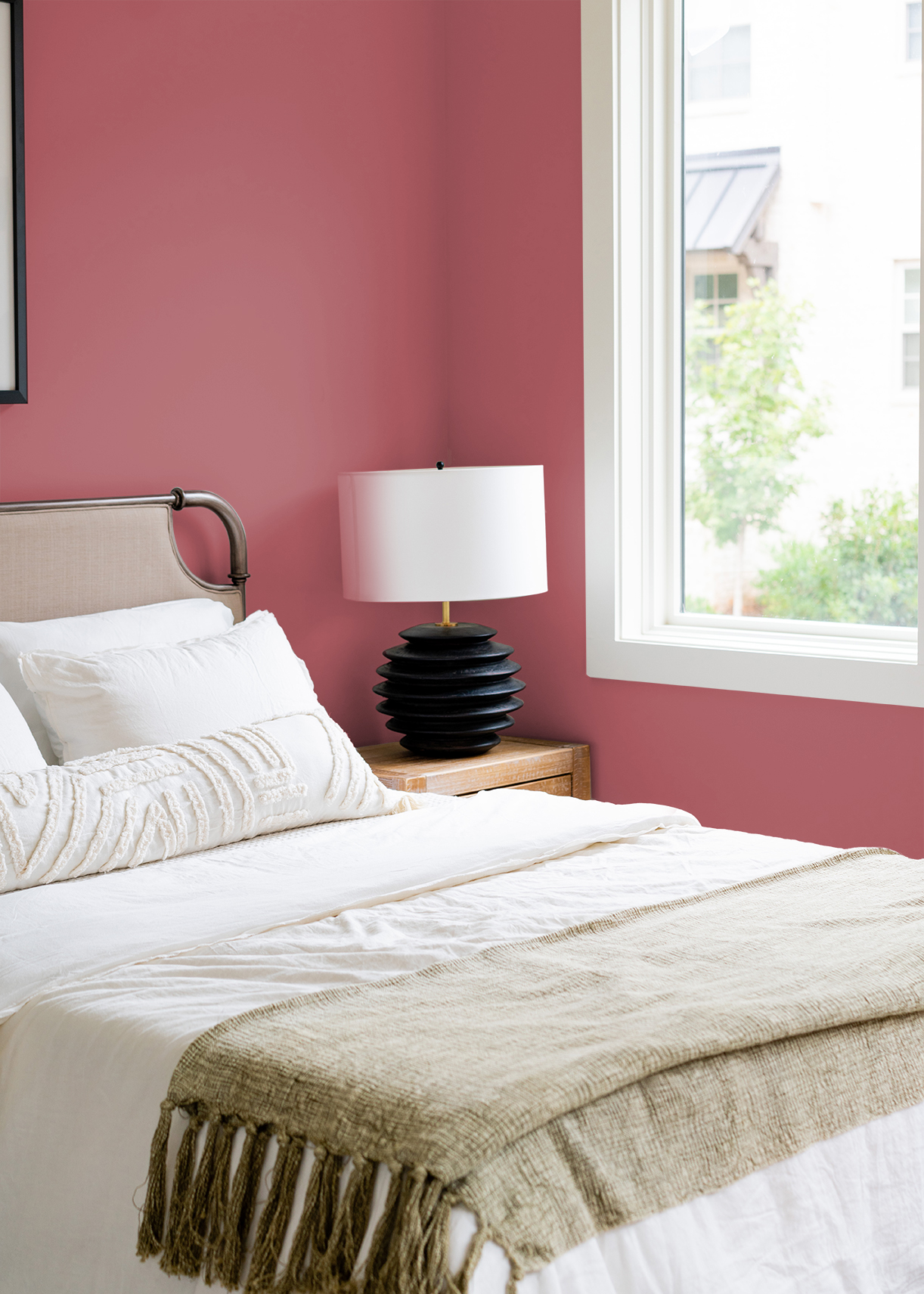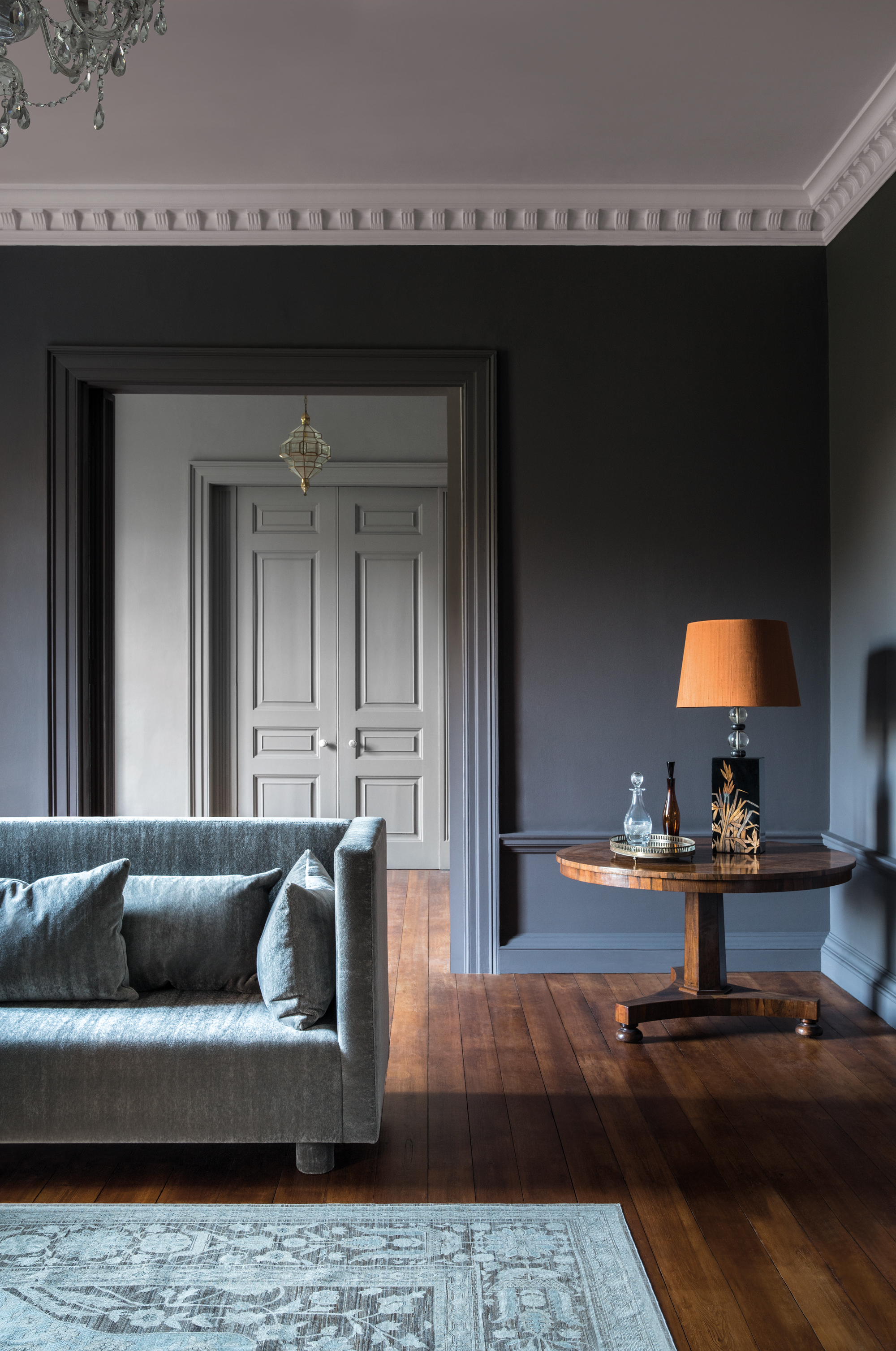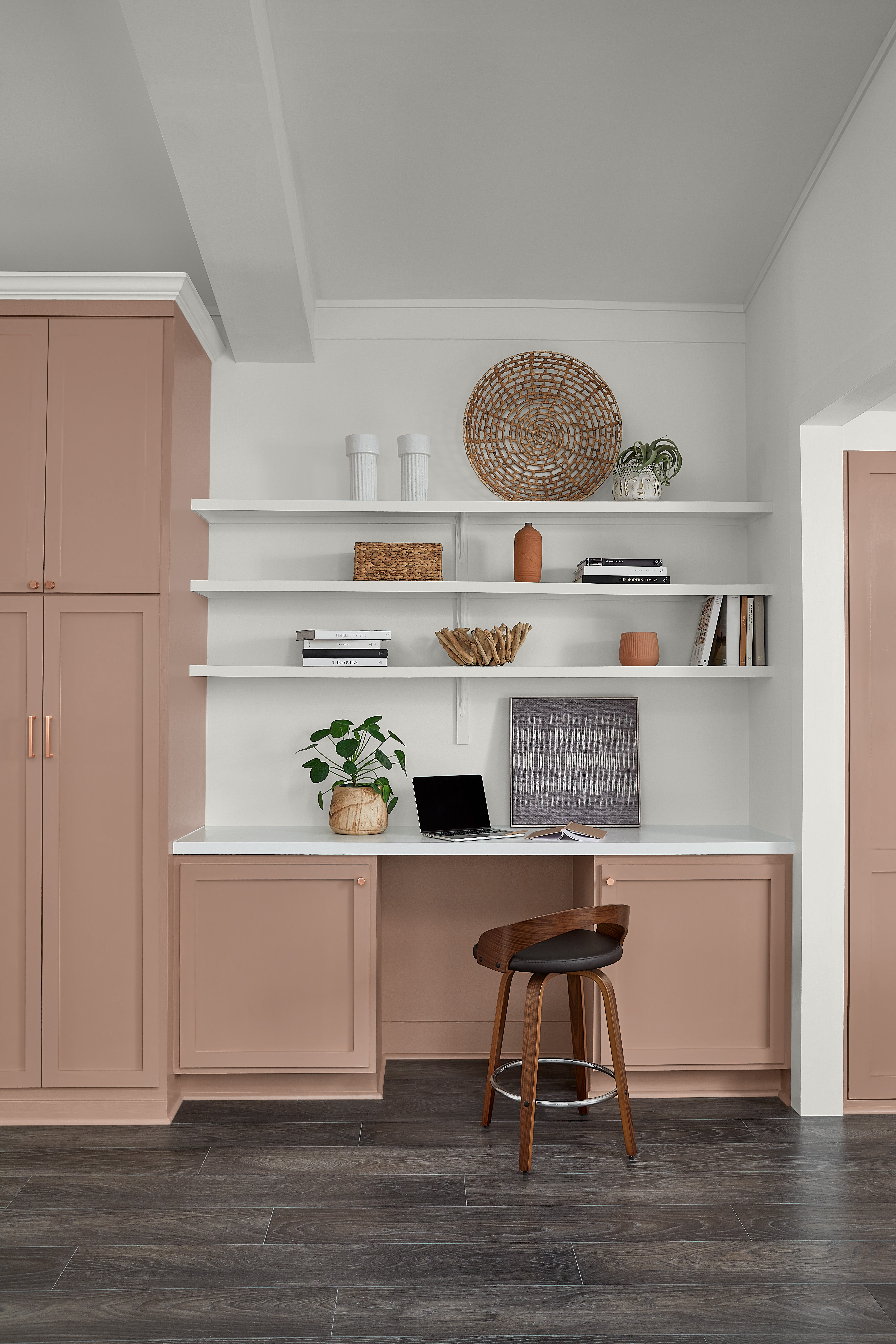How do you paint a room fast? Try these expert tips and tools for a quicker paint job
Painting a room is a time consuming task, but these expert tips, tricks and tools are guaranteed to speed up the process


The Livingetc newsletters are your inside source for what’s shaping interiors now - and what’s next. Discover trend forecasts, smart style ideas, and curated shopping inspiration that brings design to life. Subscribe today and stay ahead of the curve.
You are now subscribed
Your newsletter sign-up was successful
There's no denying it - painting a room is a time consuming task. This really isn't the kind of job that can be over and done in an hour. From clearing the furniture and laying your dust sheet to finally leaving the walls to dry, executing a truly masterful paint idea takes time and effort. In an ideal world, you'd set plenty of time aside to paint a room, but sometimes that's just not possible...
It might be that you've just moved house and you want a fresh lick of paint before moving your furniture in, or maybe you're a landlord and you have new tenants arriving to your property - whatever the circumstances, there are occasions where you just need to get the job done quickly. So, how do you paint a room fast?
Of course, knowing the best method will make the process lots quicker. For example, did you know that you should always start in one particular place? Then there's the importance of preparation, as well as the various tools that can improve your efficiency along the way. We'll explain all of these points in more detail with the help of a few professional painters so you can easily speed up your next paint job without compromising your finish.

Lilith is an expert at following news and trends across the world of interior design. She's committed to helping readers make the best choices in their homes through sharing practical tips and guides for all your painting and decorating needs. For this piece she asked experts for their advice on how to paint a room quickly without compromising your finish.
How long does it take to paint a room?

Before we delve into the question of how to paint a room faster, it's a good idea to know how long it will generally take you in the first place.
Of course, this largely depends on the size of the room in question. A small powder room is going to take a very short amount of time to paint compared to a sprawling living room. On average though, you can expect a paint job to take between three to five hours from start to finish for the first coat. That includes emptying the room, prepping the walls, and the painting itself.
The actual activity of painting - including all four walls and the ceiling - will probably take around an hour. Bear in mind though that's for a single coat. In most cases, two coats is recommended, and you'll usually need to wait at least two hours between each one for your paint to dry (and often four is recommended).
Don't be tempted to skip this part if you're in a rush. Failure to allow your walls to dry between coats can cause streaks, peeling paint, or an uneven color. If you're wondering how long paint takes to dry, we've written a handy guide that explains the drying times for different paint finishes.
The Livingetc newsletters are your inside source for what’s shaping interiors now - and what’s next. Discover trend forecasts, smart style ideas, and curated shopping inspiration that brings design to life. Subscribe today and stay ahead of the curve.
What preparation steps can speed up a paint job?

Ask any painter-decorator and they'll tell you the same thing - half the time spent on a paint job is preparation. A smooth sanded wall at the start followed by a good quality primer is the key to a professional looking finish.
Now I know what you're thinking - surely the quickest way to paint a room is to skip this part entirely? Tempting as it sounds, skipping out these steps will only cost you more time in the long run. If you try to paint over the color that's already on your walls, not only will you be left with a patchy, unprofessional paint job, but your walls will begin to peel and flake after only a matter of months. How often you should paint your walls is really up to you, but we're not keen on repainting every single season...
'Make sure all your preparation is completed before you start,' says professional painter, Tila Lee. This also includes the more mundane tasks like removing outlet covers, laying a dust sheet, organizing all your tools, and taping if necessary.
'Cleaning all surfaces to be painted will add some time in preparation but will prevent having to go back and redo areas that show dust once the paint has dried,' adds Mike Sherman, CEO and painting expert at Zibra brushes. 'There is nothing more frustrating in DIY than bypassing important steps to get done quicker. You'll pay for it in the end.'
What is the quickest method for painting a room?

When it comes to how to paint a room, there are some fool-proof methods that speed up the process to make your job far easier. First, if you're painting the ceiling, you should always start here so that any paint drips or sprays don't ruin your walls. Think about how frustrating it would be if you'd just finished a beautiful job on your walls, only to find yourself back at square one after drips from the ceiling find their way down them...
'The best advice I give to my painters is "top to bottom, left to right",' says Tila. 'Essentially, this means that you should start by cutting in the top left corner, and work your way across the room and down, rolling behind your cuts as you go and making sure to keep a wet edge (rolling over your cuts as they are still wet).'
While you might think it's easier to start by cutting in all your edges in one go to get the precise part out of the way while you have a steadier hand, your paint will both blend and dry better if you follow Tila's method and roll over your cuts while they're wet.
'Make sure you roll in the same direction to achieve a clean, consistent finish,' adds Mike. 'Working in a pattern allows you to establish a rhythm that lends itself to speed and a consistent look.'
Always be methodical when painting. 'Work your way around the room 360 degrees, one wall after the other, no skipping walls and returning,' Tila urges. 'Any time walking back and forth is time wasted, just as any time spent returning to your kit for supplies as you work is also wasted time.'
What tools should you use to make the process faster?

The year is 2022, and that means there are some clever paint tool innovations that are well worth a mention.
Firstly though, let's talk standard tools. You should always make sure they're in good working order before you start to avoid slowing the job down. 'If you are working with a broken roller cage or a brush that has stray strands sticking out, it will slow you down,' says Tila. Use clean, good quality brushes and rollers for a smoother and faster application.
According to Mike at Zibra, purchasing paintbrushes designed for specific applications will also make the job easier and give you more efficiency in painting. For example, this angled sash brush from Zibra, available on Amazon is perfect for painting molding and baseboards.
There are also a few brush cheats when it comes to those mundane tasks we mentioned earlier. 'One of the most time-consuming aspects of painting is taping,' says Mike. 'Using a paintbrush that has a good straight edge and thick pack-out will provide the stability you need to cut in without taping.' Try Zibra's cutting-in brush, available at Amazon.
Zibra has also developed their drop cloth to make protecting your floors more efficient. 'Speed Drops are triple layered structured folding mats that not only protect the surface underneath but are padded to provide comfort while working on your knees,' says Mike. 'Simply drop, kick in place, and paint.' These save you the hassle of folding up - or worse, tripping over - sprawling drop cloths.

Now for some more advanced tools. No-one wants to waste time erecting, climbing and moving step ladders around the room to reach corners, and that's why brush extenders, like this one from Amazon, were invented. They're especially useful when painting high walls at the top of stairs.
But what if you could cut out the entire task of returning your roller to your tray to top it up? Well this extension roller from Wagner does just that. The paint roller siphons paint from the tin directly into the handle and so you can do the same job in half the time and with less mess, too. Surely it doesn't get any more convenient than this?
Wagner PaintStick Extension Roller
Cut the hassle with this extension roller from Wagner on Amazon. It siphons up to paint directly in the handle, holding up to 22 oz, eliminating the need for messy roller trays, and can paint a 7’ X 10’ area with a single fill. Now that's what we call fast painting.
How can you cut-in more efficiently?
Be it painting trim or simply the edges of your walls, cutting in can be one of the most tedious tasks since it requires meticulous concentration, so how can we make this step speedier?
As mentioned, spare the hassle of taping with a proper packed-out cutting in brush to save time. Next, always make sure you have enough paint on your paintbrush. 'After you dip your brush into the paint, give a light "tap" on the inside of the can to knock off any excess product,' advises Tila. 'Do not do a push and wipe motion as this can push paint deep into the middle of the bristles, making cleaning a chore and ultimately shortening the life of your brush.'
To avoid smudging your work, Tila also suggests holding the brush like a pencil. 'Point your index finger over the long end of the bristles and wrap your thumb around the brush towards the bottom,' she says, 'Always move your brush along the cut line horizontal to the line you are cutting. This will help give you more control as well as make sure you are using all of the product in the bristles.'
Now you're halfway to being a pro-painter, all you need is practise. Time to test out these trick for yourself, you can thank us later.

Lilith Hudson is a freelance writer and regular contributor to Livingetc. She holds an MA in Magazine Journalism from City, University of London, and has written for various titles including Homes & Gardens, House Beautiful, Advnture, the Saturday Times Magazine, Evening Standard, DJ Mag, Metro, and The Simple Things Magazine.
Prior to going freelance, Lilith was the News and Trends Editor at Livingetc. It was a role that helped her develop a keen eye for spotting all the latest micro-trends, interior hacks, and viral decor must-haves you need in your home. With a constant ear to the ground on the design scene, she's ahead of the curve when it comes to the latest color that's sweeping interiors or the hot new style to decorate our homes.
